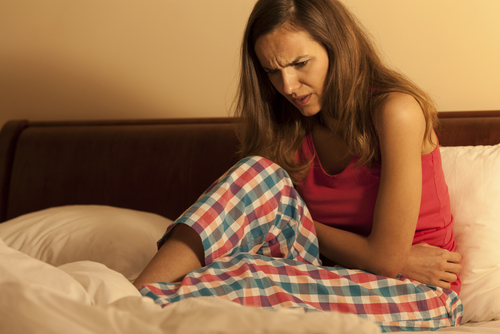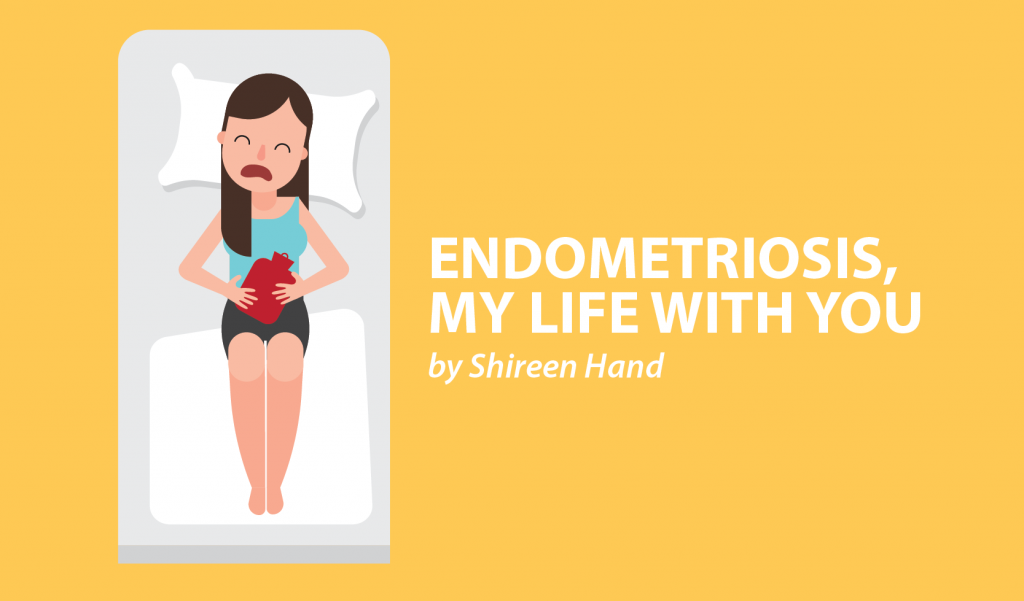I recently started a new treatment for my endometriosis and had a Nexplanon implant put in my arm at the end of August. I have to be honest, I didn’t want it. I had been free of any contraceptives for more than a year, my acne had settled down, and although my endometriosis pains were progressively worsening again, it felt nice to be the one in control of my own body for once.
I spent a long time considering the implant, and while speaking with my doctor, she explained that she didn’t think it would help me because of my past history and the way my body has reacted to similar treatments previously. So, I decided against it. But I saw my consultant at the hospital shortly after this, and she told me I had very few options left regarding treatments. As always, I felt a little backed into a corner like I didn’t have much of a choice. But we drew up a plan together to start at the easier end of the scale before we, eventually, think about surgery again. The easier end being the implant.
I assumed the implant would give me similar side effects as the Mirena coil that I had back in 2010 and still had in when my endometriosis flared up in 2012. It left me in the state I am now. I thought it might affect my appetite, make me a little nauseated, and affect my libido, skin and, possibly, my weight. It has affected my libido and skin, but that’s most likely because it’s making me bleed much more than usual. That’s something the doctor can (hopefully) help me with. I can take an additional pill alongside the implant that should stop any bleeding, but at the moment, I still need to let the implant settle in.
I am finding a few things difficult to handle, though, and mostly, it’s that I no longer feel like myself.
I have noticed a definite shift in my mood. I became very irritable almost immediately, and by the second week, I felt like there was a black cloud hovering over me. My anxiety went through the roof. And for someone who has only had mild anxiety before, but had felt very level-headed over the past few years following a bad stint of depression, it has hit me quite hard.
It’s not the first time I’ve felt like this after trying out a new treatment for my endometriosis. I’ve had three six-month rounds of Zoladex (goserelin) and Decapeptyl (triptorelin), and they really affected my mental state. In fact, I would say they have been some of my darkest times. It’s odd what a few chemicals can do to your head.
It is a difficult position to be in, though. Treatments will always have some effect on you or your health, one way or another. Take, for example, the majority of the treatments that I’ve tried for my endometriosis. They have had a negative effect on my bone health, but the things that will help my bones are the things that are bad for my endometriosis. It really is a vicious circle! But, what can we do?
One thing I’m trying hard to do is combat these negative feelings. I don’t want to cry every day or worry about any and everything. I want to feel like me again. So, I’m taking back control now. I’ve realized this isn’t me, that it’s the implant making me feel this way, and with that, I’ve been able to think of both sides of everything. Am I really feeling this anxious, or are my feelings heightened by this treatment? Am I really feeling sad enough to cry myself to sleep each night, or is there really nothing to worry about? I’ve been getting out of the house more for chilly autumnal walks, I’ve thrown myself into writing, and I’ve been more productive with my days by not staying in bed in the mornings, making sure I make the most of each day.
I won’t have yet another treatment controlling me.
When you’re in this situation, my only words of advice for you are to find yourself again. You are not what this treatment is making you. Hormones will change you; you just need to hold on a little tighter to the reins and not let go.
You can follow more of my journey over at www.emlwy.com.
***
Note: Endometriosis News is strictly a news and information website about the disease. It does not provide medical advice, diagnosis, or treatment. This content is not intended to be a substitute for professional medical advice, diagnosis, or treatment. Always seek the advice of your physician or other qualified health provider with any questions you may have regarding a medical condition. Never disregard professional medical advice or delay in seeking it because of something you have read on this website. The opinions expressed in this column are not those of Endometriosis News or its parent company, BioNews Services, and are intended to spark discussion about issues pertaining to endometriosis.


